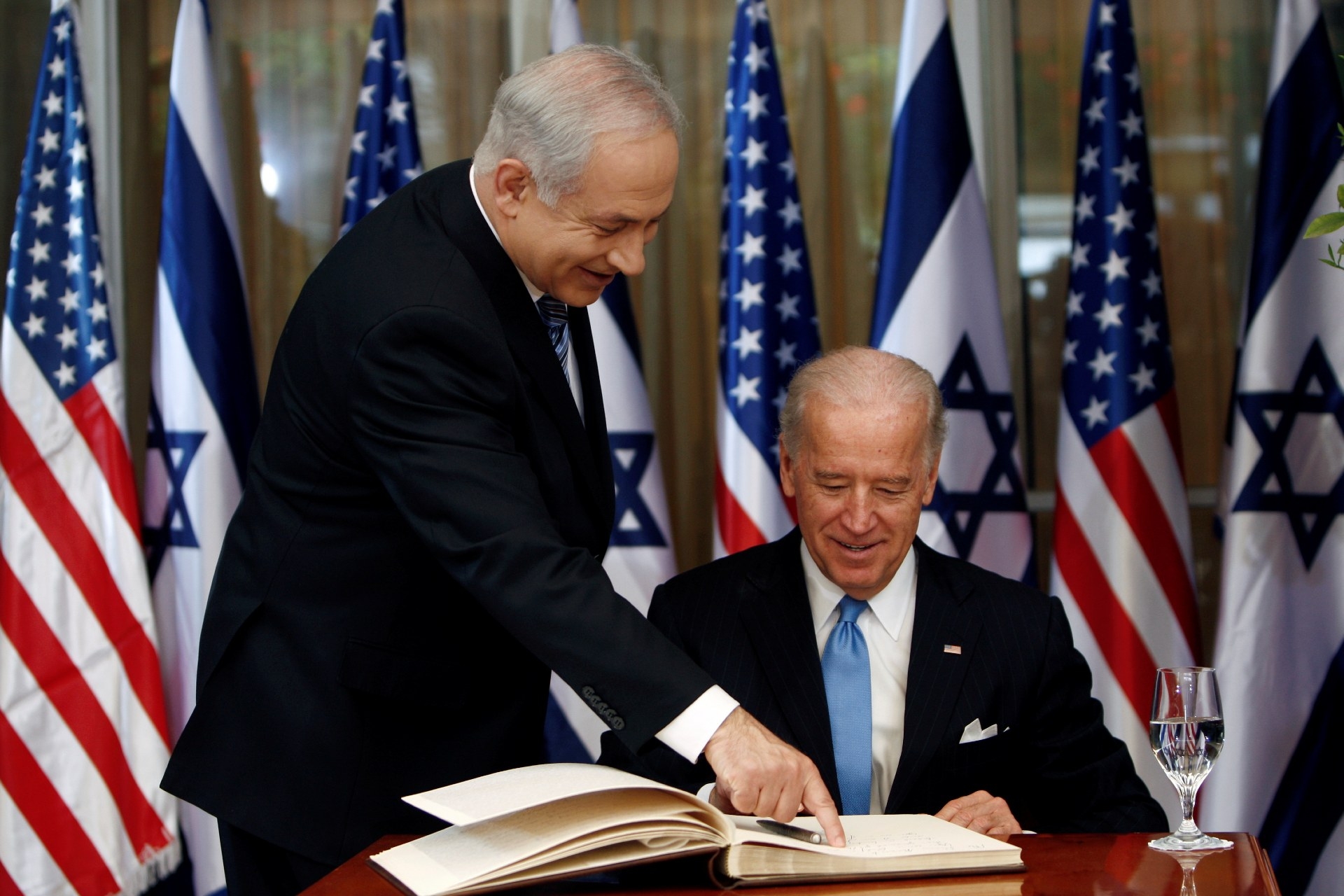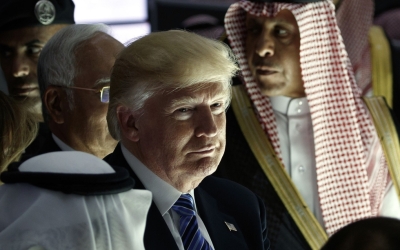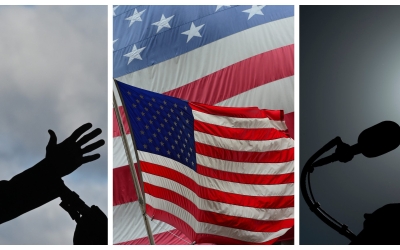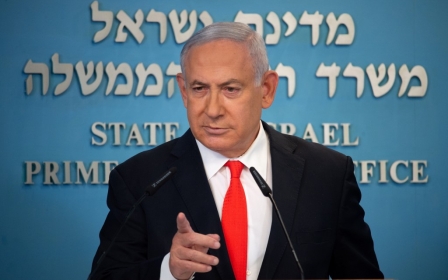With Biden's victory, it's back to the future for Israel and Palestine

Joe Biden, the US president-elect, and his incoming administration will have an impact on Israel, the Palestinians and the Middle East at large on at least three dimensions: tone, emphasis and outcome.
The Biden tone will be conciliatory and moderate, and will seek compromises instead of the confrontations that characterised Donald Trump, the feisty, abrasive and unpredictable outgoing president. And, as it is said, the tone makes the music.
It means that Biden will most probably bring the US back to the fold of the P5+1 powers that signed in 2015 the nuclear deal with Iran, an agreement which the Trump administration unilaterally withdrew from in 2018. Returning to the deal will also end the harsh US economic sanctions imposed during the Trump era, which are crippling the Iranian economy.
Nevertheless, Iran will not have a free ride. It will be required to unfold its own unilateral actions of enriching uranium and fortifying and concealing secret sites, and to roll back produced uranium to the low levels and quantities permitted by the original deal.
Washington will also demand to extend the deal, which is aimed at curtailing Iran’s nuclear military aspirations, at least for another five years beyond the 2025 expiration date. It is also expected that Biden and his foreign policy team will draw some lessons from the way the deal was negotiated and agreed upon under the Obama-Biden presidency.
In other words, the US intends to address the loopholes: to halt or at least reduce the production of Iran’s long-range missiles, its support and finance of militant groups such as Hamas and Hezbollah, and its meddling and intervention in other countries in the region, which only further fuels the civil wars in Syria, Iraq and Yemen.
Yet, to achieve such comprehensive and challenging understandings won’t be an easy task. Iran, which is soon facing its own elections, is also divided between radicals and moderates and it’s not clear at all which path the Supreme Leader Ali Khamenei, who doesn’t trust any US administration, will take.
Resuming relations
Another manifestation of Biden’s moderation will be evident in his perceptions and beliefs in the Palestinian-Israeli conflict.
Biden has never hidden his support for the two-state solution. He and his advisers reiterated it during their election campaign. They have also opposed the extension of Jewish settlements.
It is very likely that once Biden enters the Oval Office, his foreign and national security team will renew contacts with the Palestinian Authority, reinstate the Palestinian embassy in Washington and re-open the US Treasury’s pipes to allow the smooth flow of financial aid to the Palestinians, which were blocked and closed by the outgoing administration.
From sources close to the Biden campaign, Middle East Eye learned that the CIA will once again cooperate with its Palestinian counterparts and engage in mutual security collaboration to tackle terror threats
From sources close to the Biden campaign, Middle East Eye also learned that the CIA will once again cooperate with its Palestinian counterparts and engage in mutual security collaboration to tackle terror threats. But at the same time, PA President Mahmoud Abbas will be asked to tone down anti-Israeli rhetoric and to resume talks with Israel.
Biden and his Vice President-designate Kamala Harris, who has been less involved in foreign policy, are known as politicians who care about and are sensitive to human rights. Thus, they will not hesitate to emphasise and express their concerns whenever Jewish settlers, backed by Israel’s security and police forces, abuse Palestinian rights, such as through land confiscations, blocking access to water wells and cutting down olive trees.
No wonder that Abbas rushed to congratulate the new president-elect and expressed his hope of renewing his encounters with him.
Pressure on Israeli government
It is also expected that the new administration will pressure the Israeli government - a shaky coalition led by Benjamin Netanyahu and at risk of collapse next month - to return to the negotiating table with the PA.
All in all, on both fronts of Iran and Palestine, Biden’s victory is bad news for Netanyahu. This may explain why he waited 12 hours - behind every western leader - before he issued a congratulatory message to Biden.
It is not a secret that the Israeli prime minister has benefited from the personal intimate relations he formed with Trump, who was very receptive and has succumbed to most of Netanyahu’s demands, except one: Trump didn’t allow Netanyahu to annex the occupied West Bank.
However, advised by Netanyahu, Trump withdrew from the nuclear deal and imposed the sanctions on Iran. Trump also gladly reduced the territory allocated to the Palestinian state according to the Clinton-Obama peace plans (which the PA rejected anyway) to 70 percent, and he moved the US embassy to West Jerusalem, a decision that Biden is not going to reverse.
Yet it must be added that, for Netanyahu, it is not a zero-sum game. Palestinian gains, even limited, are not necessarily a total defat for the Israeli prime minister. The triparty Netanyahu-Biden-Abbas relations are going to be much more complex.
First of all, Biden has always considered himself as a true friend of Israel, who cares about the country’s security considerations. He is not going to reduce, for example, the $3.8bn military aid to Israel or to condition it to curtailing the expansion of Israeli settlements in the West Bank. He will ask Israel to stop building new settlements but there will be no penalties if his demand is not met.
The losing camp
Netanyahu is not alone in the losing camp.
Saudi Arabia’s autocratic Crown Prince Mohammed bin Salman, who is considered Netanyahu’s soulmate when it comes to fears and concerns about Iran’s nuclear ambitions, finds himself in an undesired position.
He will have to navigate his way in what he perceives as a threatening Democratic Party jungle.
The crown prince has two options. One is to accelerate his country’s nuclear programme, which he was already contemplating and preparing the ground for under Trump, as an additional deterrence against Iran. Such a move will surely deteriorate relations with Biden.
Saudi Arabia’s autocratic Crown Prince Mohammad bin Salman, who is considered Netanyahu’s soulmate when it comes to fears and concerns about Iran’s nuclear ambitions, finds himself in an undesired position
The other, which is more plausible, is to fully cooperate with the new US administration and thus attempt to influence it. Both options will be welcome news for Israel, which hopes that bin Salman will soon also jump on the wagon and join the UAE, Bahrain and Sudan in normalising relations with the country.
The two dimensions of the new tone and emphasis emerging from the US after the elections, however, may well prove to be just cosmetic steps, if they are cemented in the third dimension: the question of what will be the real outcome of all these expectations, hopes and possible moves.
In other words, if the Biden administration doesn’t show results on the ground, such as new deals with Iran and some movement to accommodate Israeli-Palestinian conflict, the Middle East will witness more of the old same.
Middle East Eye delivers independent and unrivalled coverage and analysis of the Middle East, North Africa and beyond. To learn more about republishing this content and the associated fees, please fill out this form. More about MEE can be found here.






